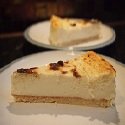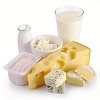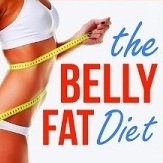Lose Weight
![]() Calories in Food
Calories in Food
![]() Calories in Dairy
Calories in Dairy
![]() Calories in Port Salut Cheese
Calories in Port Salut Cheese
Calories in Port Salut Cheese, Port Salut Nutrition Facts
How many calories in Port Salut cheese? See below, the Port Salut cheese calories for the different serving sizes. We provide you with Port Salut nutrition facts and the health benefits of Port Salut cheese to help you to lose weight and eat a healthy diet.
Port Salut is a very tasty but mild semi-soft cheese from the Mayenne region of France. Unusual for a French cheese, it’s made from pasteurized cow’s milk and recognized by a thin orange rind.
Port Salut is high in fat, approx. 28g per 100g, therefore eat sparingly or avoid if on a low fat diet. It does though provide a fantastic source of protein and calcium. In addition, it contains vitamins A, B1-B3, B5, B6, B12, D, E, K, phosphorus, potassium, selenium and other minerals.
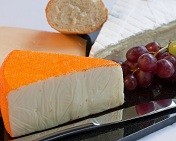
Cheese in general is great for healthy bones and teeth. Other Port Salut benefits include the fact that it is one of the few French cheeses made from pasteurised milk.
Compare calories in Port Salut cheese with the other calories in cheese and dairy products.
Calories in Port Salut Cheese
Refuse: 0%| Serving Size | Calories per Serving |
| 100 grams | 352 kcal (1471 kJ) |
| 1 cup, diced, 132 grams | 465 kcal (1942 kJ) |
| 1 cup, shredded, 113 grams | 398 kcal (1662 kJ) |
| 1 oz, 28.35 grams | 100 kcal (417 kJ) |
| 1 cubic inch, 17 grams | 60 kcal (250 kJ) |
| 1 slice (1 oz), 28 grams | 99 kcal (412 kJ) |
| 1 package (6 oz), 170 grams | 598 kcal (2501 kJ) |
Port Salut Cheese Nutritional Information
| Nutritional value per 100 g (3.5 oz) | |
|---|---|
| Proximates: | |
| Water | 45.45 g |
| Energy | 1471 kJ (352 kcal) |
| Carbohydrates | 0.57 g |
| Sugars | 0.57 g |
| Protein | 23.78 g |
| Total Fat: | 28.20 g |
| saturated fat | 16.691 g |
| monounsaturated fat | 9.338 g |
| polyunsaturated fat | 0.729 g |
| Cholesterol | 123 mg |
| Minerals: | |
| Calcium, Ca | 650 mg (65 %) |
| Iron, Fe | 0.43 mg (2 %) |
| Magnesium, Mg | 24 mg (6 %) |
| Phosphorus, P | 360 mg (36 %) |
| Potassium, K | 136 mg (3 %) |
| Zinc, Zn | 2.60 mg (17 %) |
| Copper, Cu | 0.022 mg (1 %) |
| Manganese, Mn | 0.011 mg (0.6 %) |
| Selenium, Se | 14.5 mcg (21 %) |
| Vitamins: | |
| Thiamine (Vit. B1) | 0.014 mg (1 %) |
| Riboflavin (Vit. B2) | 0.240 mg (14 %) |
| Niacin (Vit. B3) | 0.060 mg (0.3 %) |
| Pantothenic acid (B5) | 0.210 mg (2.1 %) |
| Vitamin B6 | 0.053 mg (3 %) |
| Folate (Vit. B9) | 18 mcg (5 %) |
| Vitamin B12 | 1.50 mcg (25 %) |
| Vitamin A | 1092 IU (22 %) |
| Vitamin E | 0.24 mg (1.2 %) |
| Vitamin D | 21 IU (5 %) |
| Vitamin K | 2.4 mcg (3 %) |
| Percentages are relative to US Recommended Daily Intake (RDI) for adults. | |
Author: Lana Soko
You Might Also Like:
Like This Page?
|
Share This Page:
|
Search Our Site:

Free E-Book:
We Recommend:
Looking to get your body into great shape? Get the very best results for your efforts and money! Save your valuable time from surfing the internet. These are theBestselling Weight Loss Programs
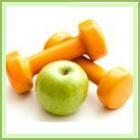
Programs that work and have thousands of satisfied customers worldwide!

 |
